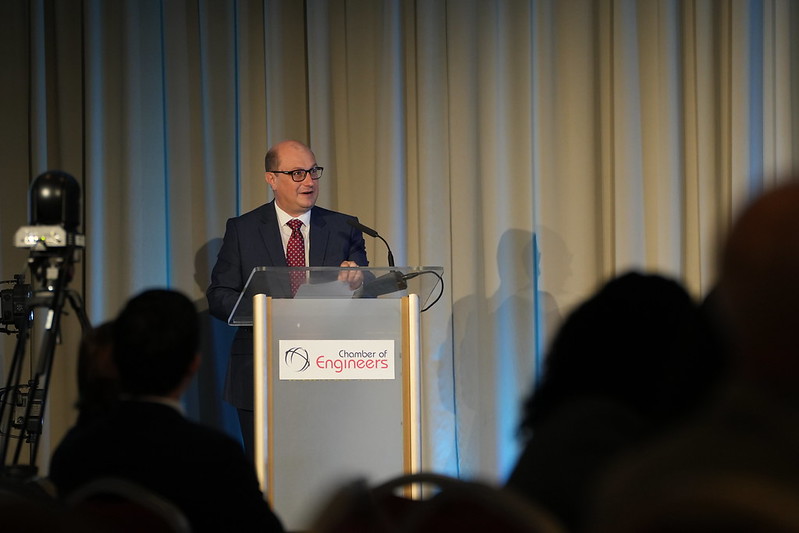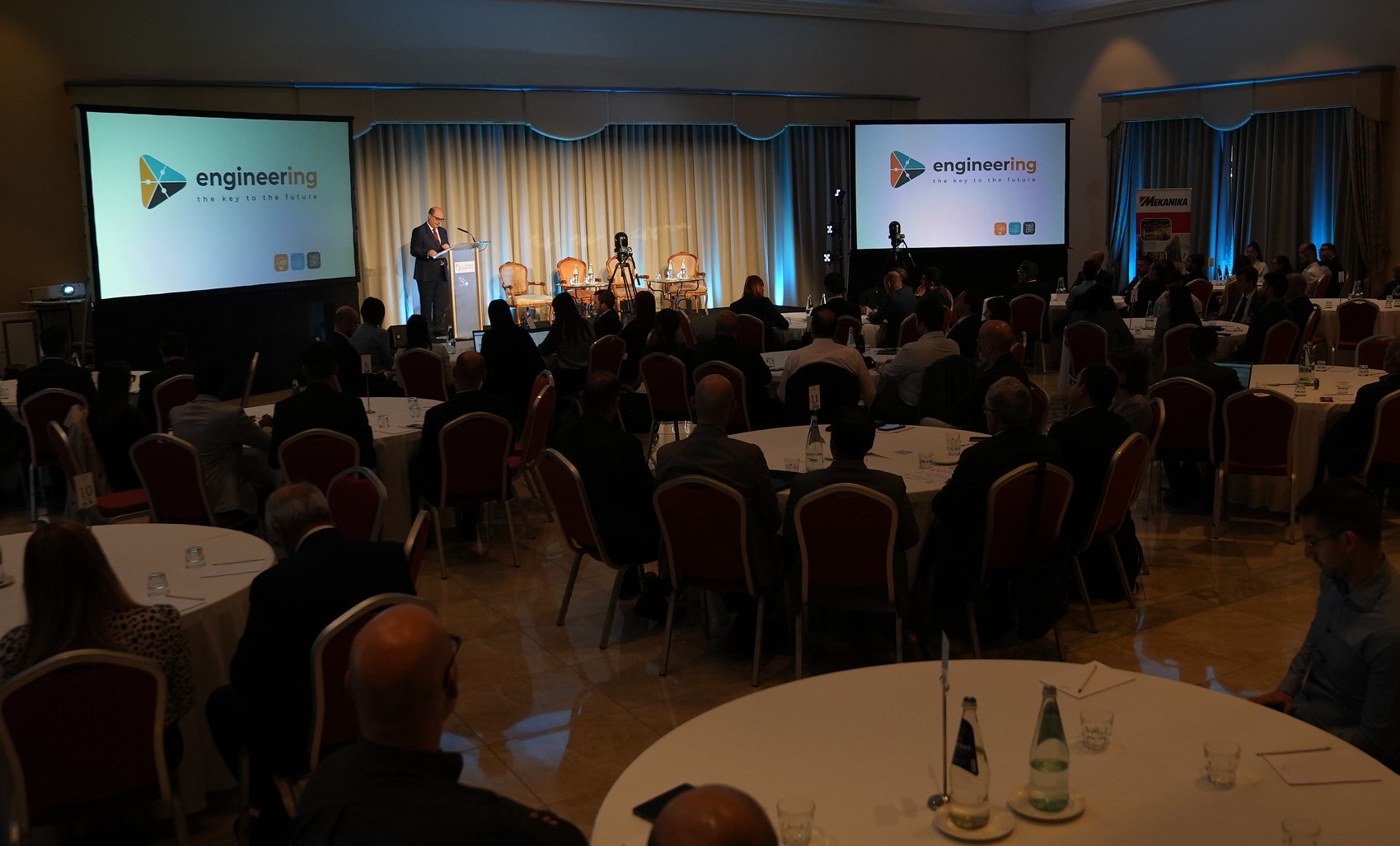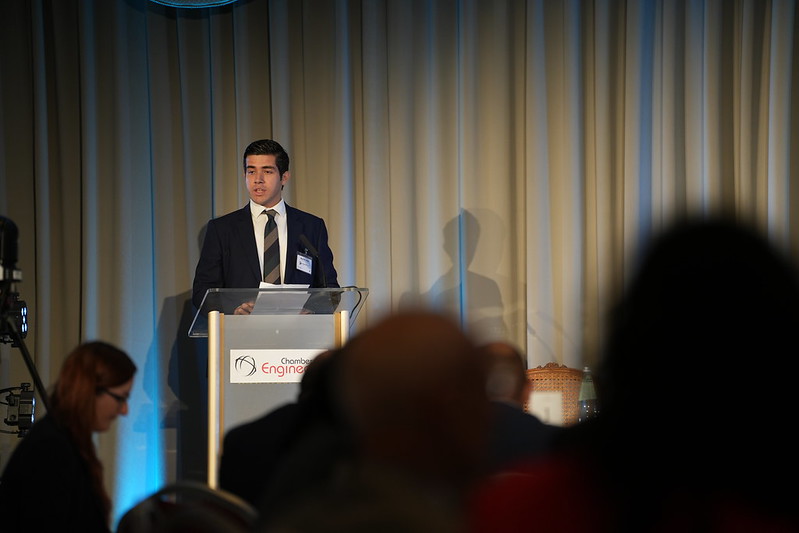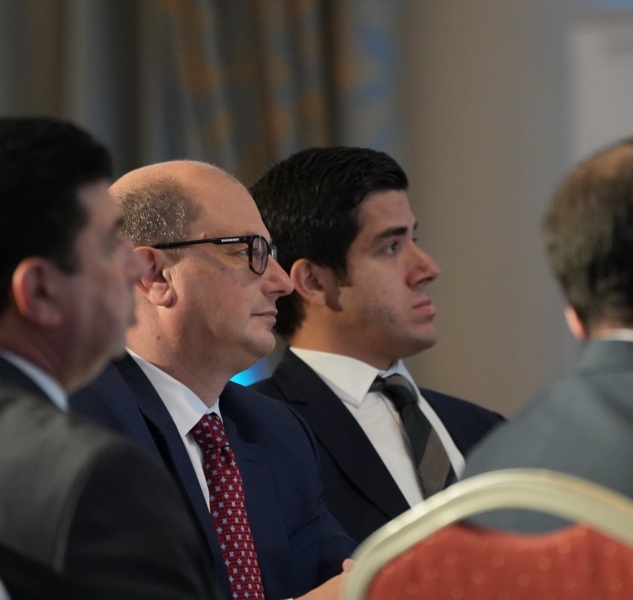“Engineers have a unique ability to identify opportunities.”
Engineering the future – that is our collective responsibility. The choices we make today shall forge the quality of the future. The effects of tomorrow’s world are the results of what we decide to achieve and how we act from now.
Over and above the legal definition of an engineer – which today I will avoid going into the snare of discussing here as it has raised enough controversy within the profession – I will seize this opportunity to express and share with you my humble opinion and own experience of the engineering profession.
In my view, engineers are not just cliché problem solvers. Prior to solving difficulties, I strongly believe that engineers have a unique ability to identify opportunities. Continuously showing their tenacity as catalysts of innovation.
The distinct attribute of being able to apply scientific knowledge, technical expertise, and creativity to design, develop and implement new solutions to improve people’s lives is what defines my view of an engineer. In short, engineers are innovators.

In a world where our economies are being challenged by post-pandemic realities and by complex geopolitical issues within our own continent, innovation is of key importance to remain relevant.
To achieve this, our modern society relies on the value that engineers are able to bring forward, be they new manufacturing processes, novel infrastructure materials, cutting-edge medical devices, reliable and dependable utilities, IT and so many more.
Innovation, however, does not necessarily take the form of extraordinary technological breakthroughs. With growing environmental concerns, the ability to find and develop solutions to complex challenges, taking small but progressive improvements to the ultimate goal of decarbonization, is a matter of equal importance.
I see the crucial role of our engineers being innovative for this country to reach its sustainability goals. Beyond generation of renewable energy, which is already challenging considering our geographical limitations and environment, the intelligent and efficient use of energy and other limited resources is paramount.

We need good engineering skills, breaking traditional boundaries and venturing beyond our customary comfort zones to design energy-efficient buildings and low-carbon transportation. This can be achieved in collaboration with other professions too. Furthermore, sustainable but affordable efforts towards the reduction of the impact of human activities on the environment, shall not come at the expense of comfort or being prohibitively unreachable.
Another very important facet of innovation is digitalisation. We have all witnessed, during the pandemic, how digital communications, remote purchasing platforms and a plethora of new services suddenly transformed what was our normal way of life and became essential commodities. Beyond those specific uses, to mention a few other openings, I believe that digitalisation can contribute towards better manufacturing processes, more comfortable homes and buildings, reliable and secure financial services, optimized supply chains and efficient transportation and communication. The list of possible prospects is endless, and I am sure that there are other openings yet to be realised.
Here is where we need to be clever – to make these achievements without adding unnecessary burdens on our economies and on the environment using digital technologies. Engineers have the academic training and the necessary aptitude to make this possible.
Complementing this, our role as government is to foster the right conditions for this to happen.
Energy efficiency in buildings is a priority and a commitment for this Government. It is a key peg to reach our ambitious 2050 decarbonisation goals. In this year’s budget, we have extended the assistance for the installation of renewables in residences and for renovations in private sector buildings.
We cannot and we will not only focus on new buildings. I strongly believe that we must be innovative to find effective and affordable solutions to retrofit our existing buildings so that they achieve a better performance whilst respecting the local heritage.
It is true that some commercial engineering solutions are universally adaptable. But there are several others that require local knowledge so that they can be adapted to suit our climate, our building materials and the constructions methods of our existing building stock. The Chamber of Engineers can serve as a catalyst for discussion and evolution of best practices.

A similar situation prevails in various other sectors of our economy. This administration has been characterized by constant and robust economic growth driven by numerous sectors. We all agree that we need to continue to nurture economic growth.
In this setting, it is imperative that innovation, sustainability, and digital transformation should continue to be the central drivers for further development of our future economy. We acknowledge the need to focus on these drivers to deliver the much-desired results whilst minimizing the impact of economic growth and reducing disruptions on our society in the process.
By embracing digital technologies, engineers can drive innovation, rethink existing solutions, improve efficiency, and deliver solutions that meet the evolving needs of today’s world. Engineers can provide new tools to design, analyze and manage our projects differently.
The critical role of the engineering profession to contribute towards technological advancements, infrastructure development, sustainability efforts, manufacturing and industrial innovations, and research and development is unparalleled.
This is an opportunity to shape the future by both identifying opportunities to do things differently and creating transformative solutions that improve our lives and drive societal progress.
During the past year my ministry together with the Engineering Profession Board has taken a number of steps to ensure measurable improvements. Several administrative issues that have been brought to my attention have been addressed conclusively.
I bode that the engineering community at large finds its means to come together and present itself as a coordinated body of society to ensure that this nation continues to be a forerunner in its most challenging aspects.
I will conclude by sharing my concern that this profession is in dire need to attract more members of the younger generation. I do not subscribe to the idea that the profession is less appealing than it used to be a decade ago. Technology has continued to make significant strides of which people speak about on a daily basis. Innovation is, in itself, an alluring prospect.
This is a collective interest. I believe that we should team up as Government, the engineering community, and academic stakeholders to draw more people towards engineering, if we do want to determine the shape tomorrow’s world.


